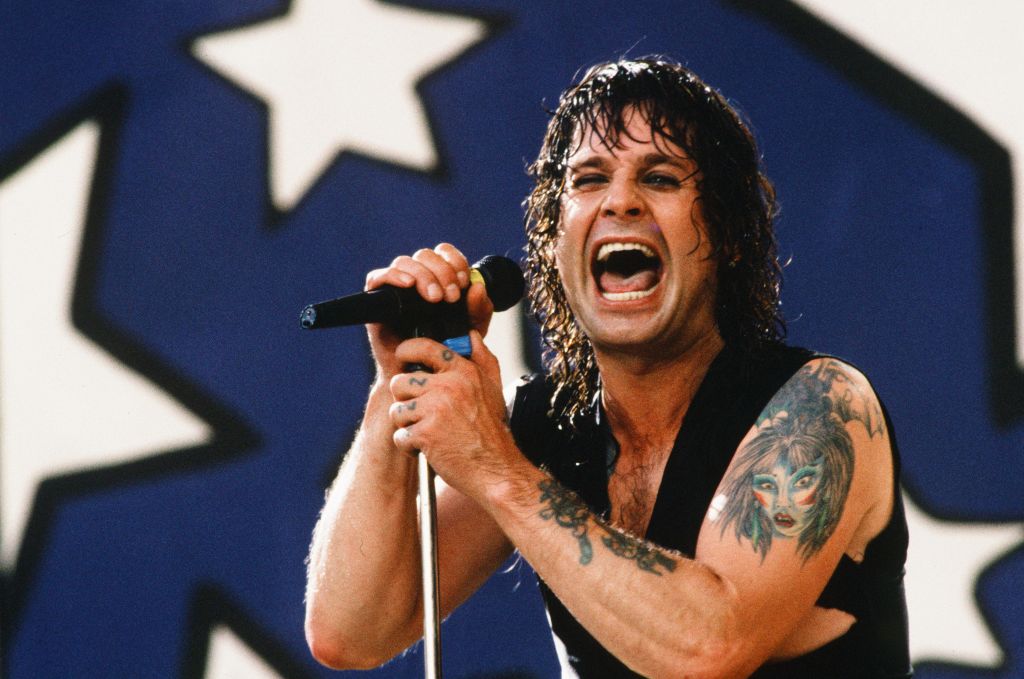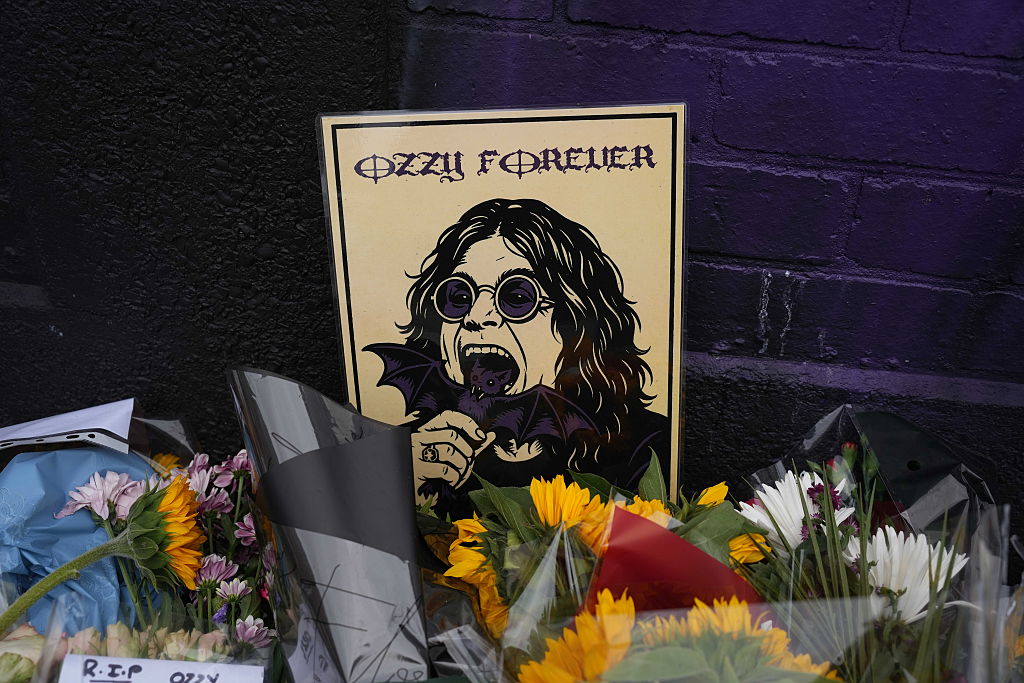Ozzy Osbourne: the working-class Brummie who became heavy metal royalty
Black Sabbath's frontman Ozzy Osborne, the people's 'Prince of Darkness', has died aged 76

Get the latest financial news, insights and expert analysis from our award-winning MoneyWeek team, to help you understand what really matters when it comes to your finances.
You are now subscribed
Your newsletter sign-up was successful
Want to add more newsletters?

Twice daily
MoneyWeek
Get the latest financial news, insights and expert analysis from our award-winning MoneyWeek team, to help you understand what really matters when it comes to your finances.

Four times a week
Look After My Bills
Sign up to our free money-saving newsletter, filled with the latest news and expert advice to help you find the best tips and deals for managing your bills. Start saving today!
The teenage John “Ozzy” Osbourne did “not seem like someone with a glittering future ahead of them”, says Alexis Petridis in The Guardian. He had a troubled childhood in his native Birmingham and struggled at school. His prospects when he left at 15 “seemed non-existent”. He could not even make it as a burglar – some comically inept escapades ended in jail.
But on his release, he wrote “Ozzy Zig needs a gig” on a card in the window of a local music shop, says the BBC. The rest is rock-music history. But no one was more surprised at the success of what became Black Sabbath than Ozzy himself. Ozzy, who died this week at the age of 76, once said the thing he was most proud of was that his band was not the creation of some music mogul. It was just four ordinary guys who decided “let’s have a go” and “succeeded beyond their wildest expectations”.
The music they came up with in response to drummer Bill Ward’s idea that they should trade on the popularity of horror films and create a rock equivalent “arrived fully formed”, says Petridis. Their sound “felt organic, not calculated”, and was a “product of their environment: a grim, provincial, industrial world where the drugs associated with the hippy counterculture had arrived, but not the freedom or opportunities enjoyed by London’s bohemian elite”. Black Sabbath’s carefully cultivated image, dark mythology and tales of rock ‘n’ roll excess were belied by Osbourne’s performances. He was no “preening rock god”, or even the “prince of darkness” as he became known, but always looked “more like a member of the audience who had been allowed up on the stage and couldn’t quite believe his luck”.
MoneyWeek
Subscribe to MoneyWeek today and get your first six magazine issues absolutely FREE

Sign up to Money Morning
Don't miss the latest investment and personal finances news, market analysis, plus money-saving tips with our free twice-daily newsletter
Don't miss the latest investment and personal finances news, market analysis, plus money-saving tips with our free twice-daily newsletter

Ozzy Osbourne: "It's all just a role I play"
Osbourne left an estimated net worth of $220 million, says Business Plus. He and his second wife, Sharon, enjoyed success with Ozzfest, a heavy-metal festival, and went on to front reality show The Osbournes, which earned the family $5 million per episode by the end in 2005. (It was, says The Economist, “The Simpsons come to life with tight leather trousers and a Brummie accent”.) It was here that Ozzy’s true personality was revealed, he said. “All the stuff on stage, the craziness, it’s all just a role I play, my work,” he told The New York Times in 1992. “I am not the Antichrist. I am a family man”. He was also, as his original manager, Jim Simpson, told the BBC, “one of nature’s good guys – one of the real innocents of this world”.
This article was first published in MoneyWeek's magazine. Enjoy exclusive early access to news, opinion and analysis from our team of financial experts with a MoneyWeek subscription.
Get the latest financial news, insights and expert analysis from our award-winning MoneyWeek team, to help you understand what really matters when it comes to your finances.
Jane writes profiles for MoneyWeek and is city editor of The Week. A former British Society of Magazine Editors (BSME) editor of the year, she cut her teeth in journalism editing The Daily Telegraph’s Letters page and writing gossip for the London Evening Standard – while contributing to a kaleidoscopic range of business magazines including Personnel Today, Edge, Microscope, Computing, PC Business World, and Business & Finance.
-
 How a ‘great view’ from your home can boost its value by 35%
How a ‘great view’ from your home can boost its value by 35%A house that comes with a picturesque backdrop could add tens of thousands of pounds to its asking price – but how does each region compare?
-
 What is a care fees annuity and how much does it cost?
What is a care fees annuity and how much does it cost?How we will be cared for in our later years – and how much we are willing to pay for it – are conversations best had as early as possible. One option to cover the cost is a care fees annuity. We look at the pros and cons.
-
 Ayatollah Ali Khamenei: Iran’s underestimated chief cleric
Ayatollah Ali Khamenei: Iran’s underestimated chief clericAyatollah Ali Khamenei is the Iranian regime’s great survivor portraying himself as a humble religious man while presiding over an international business empire
-
 Long live Dollyism! Why Dolly Parton is an example to us all
Long live Dollyism! Why Dolly Parton is an example to us allDolly Parton has a good brain for business and a talent for avoiding politics and navigating the culture wars. We could do worse than follow her example
-
 Michael Moritz: the richest Welshman to walk the Earth
Michael Moritz: the richest Welshman to walk the EarthMichael Moritz started out as a journalist before catching the eye of a Silicon Valley titan. He finds Donald Trump to be “an absurd buffoon”
-
 David Zaslav, Hollywood’s anti-hero dealmaker
David Zaslav, Hollywood’s anti-hero dealmakerWarner Bros’ boss David Zaslav is embroiled in a fight over the future of the studio that he took control of in 2022. There are many plot twists yet to come
-
 The rise and fall of Nicolás Maduro, Venezuela's ruthless dictator
The rise and fall of Nicolás Maduro, Venezuela's ruthless dictatorNicolás Maduro is known for getting what he wants out of any situation. That might be a challenge now
-
 The political economy of Clarkson’s Farm
The political economy of Clarkson’s FarmOpinion Clarkson’s Farm is an amusing TV show that proves to be an insightful portrayal of political and economic life, says Stuart Watkins
-
 The most influential people of 2025
The most influential people of 2025Here are the most influential people of 2025, from New York's mayor-elect Zohran Mamdani to Japan’s Iron Lady Sanae Takaichi
-
 Luana Lopes Lara: The ballerina who made a billion from prediction markets
Luana Lopes Lara: The ballerina who made a billion from prediction marketsLuana Lopes Lara trained at the Bolshoi, but hung up her ballet shoes when she had the idea of setting up a business in the prediction markets. That paid off